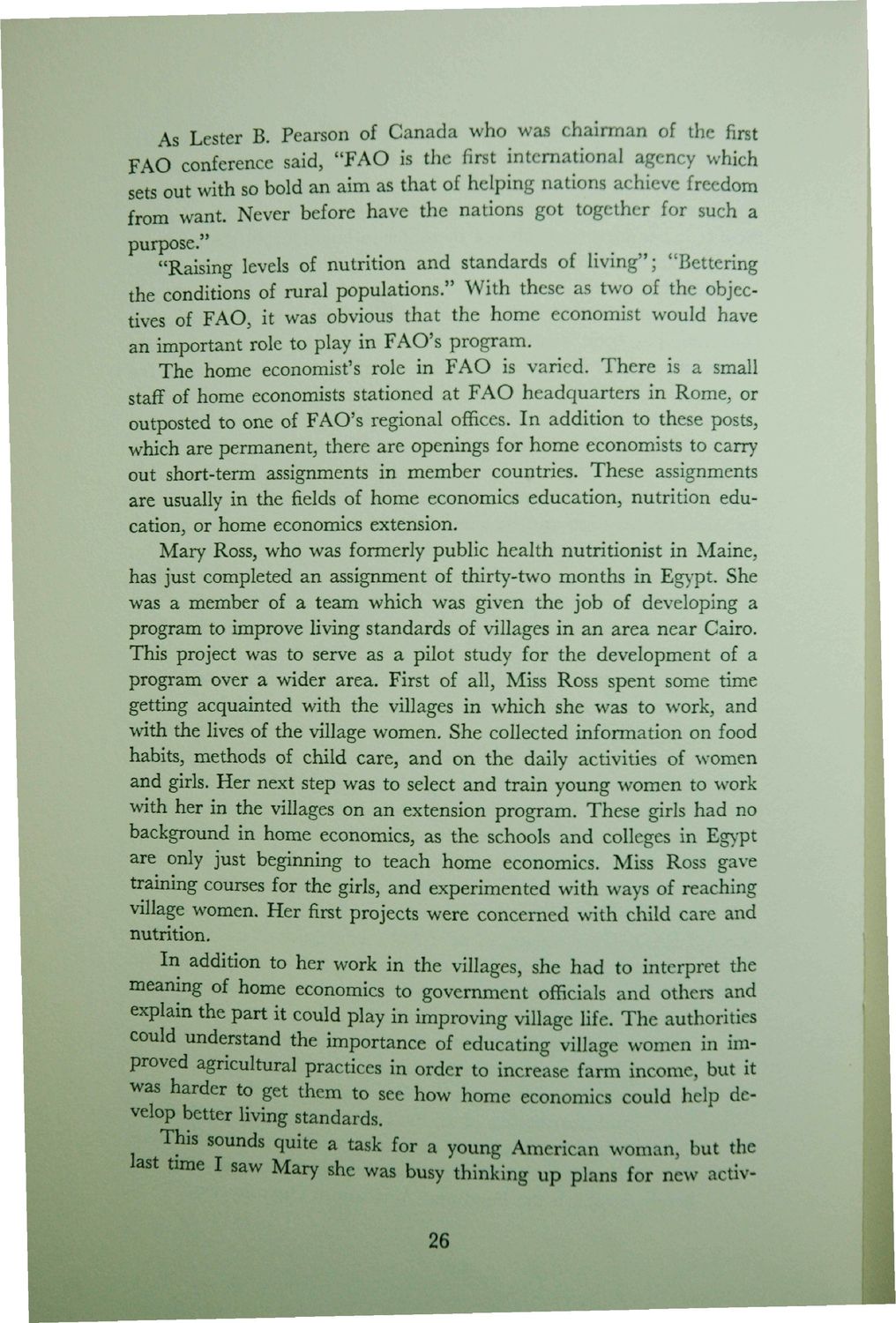| |
| |
Caption: Dedication - Home Economics - Challenge of Home Economics
This is a reduced-resolution page image for fast online browsing.

EXTRACTED TEXT FROM PAGE:
As Lester B. Pearson of Canada who was chairman of the first FAO conference said, "FAO is the first international agency which sets out with so bold an aim as that of helping nations achieve freedom from want Never before have the nations got together for such a purpose." "Raising levels of nutrition and standards of living"; "Bettering the conditions of rural populations." With these as two of the objectives of FAO, it was obvious that the home economist would have an important role to play in FAC^s program. The home economist's role in FAO is varied. There is a small staff of home economists stationed at FAO headquarters in Rome, or outposted to one of FAO's regional offices. In addition to these posts, which are permanent, there are openings for home economists to carry out short-term assignments in member countries. These assignments are usually in the fields of home economics education, nutrition education, or home economics extension. Mary Ross, who was formerly public health nutritionist in Maine, has just completed an assignment of thirty-two months in Egypt. She was a member of a team which was given the job of developing a program to improve living standards of villages in an area near Cairo. This project was to serve as a pilot study for the development of a program over a wider area. First of all, Miss Ross spent some time getting acquainted with the villages in which she was to work, and with the lives of the village women. She collected information on food habits, methods of child care, and on the daily activities of women and girls. Her next step was to select and train young women to work with her in the villages on an extension program. These girls had no background in home economics, as the schools and colleges in Egypt are only just beginning to teach home economics. Miss Ross gave training courses for the girls, and experimented with ways of reaching village women. Her first projects were concerned with child care and nutrition. In addition to her work in the villages, she had to interpret the meaning of home economics to government officials and others and explain the part it could play in improving village life. The authorities could understand the importance of educating village women in improved agricultural practices in order to increase farm income, but it was harder to get them to see how home economics could help develop better living standards. This sounds quite a task for a young American woman, but the last tune I saw Mary she was busy thinking up plans for new activ26
| |